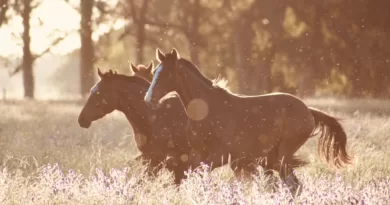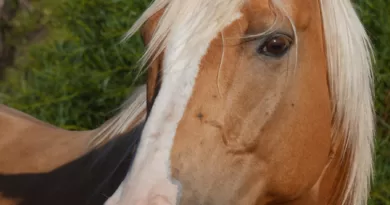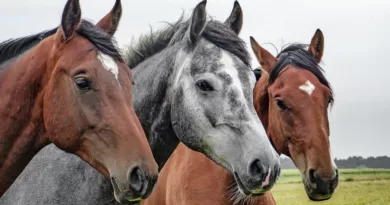Does Reining Hurt Horses
The Physical Demands of Reining on Horses
Reining is a highly demanding discipline that places significant physical stress on horses. The intricate maneuvers, such as spins, sliding stops, and rapid changes of direction, require tremendous strength, balance, and agility from the horse. These movements require the horse to engage and coordinate various muscle groups, especially the hindquarters, to execute precise maneuvers with speed and accuracy. The repetitive nature of these movements during training and competition can lead to muscle fatigue, tendon strain, and even overuse injuries in horses.
Moreover, the physical demands of reining can also place considerable stress on the horse’s joints. The rapid decelerations and abrupt changes in direction can put immense pressure on the horse’s fetlocks, hocks, and stifles. The repetitive stress on these joints may increase the risk of joint inflammation, cartilage damage, and the development of degenerative conditions such as osteoarthritis. Ensuring proper conditioning, adequate warm-up routines, and careful monitoring of the horse’s overall well-being are essential to minimize the risk of musculoskeletal injuries.
In conclusion, reining places significant physical demands on horses, requiring them to possess exceptional strength, coordination, and stamina. The intense nature of the maneuvers involved can lead to muscle fatigue, tendon strain, and joint injuries. It is crucial for horse owners, trainers, and riders to prioritize the welfare of the horse through proper training, conditioning, and preventive measures to mitigate the potential harm caused by the physical demands of this discipline.
Potential Injuries That Can Occur in Reining
Reining, a highly skilled and dynamic equestrian sport, involves precise maneuvers and intense physical demands on the horse. As with any sport that pushes the limits of athletic performance, there is always a risk of potential injuries in reining. Several factors contribute to these injuries, including the intensive training and rigorous competition schedule.
One of the most common injuries in reining is musculoskeletal strain or sprain. The intricate maneuvers and quick stops put immense stress on a horse’s muscles and joints, increasing the likelihood of strains or sprains. While these injuries can range from mild to severe, they can have a significant impact on the horse’s performance and overall well-being. In addition to musculoskeletal injuries, horses in reining can also experience soft tissue injuries, such as tendon or ligament damage, which can be career-ending if not properly treated and rehabilitated.
The Importance of Proper Training and Conditioning in Reining
Proper training and conditioning are essential for horses participating in reining. Reining is a physically demanding sport that requires horses to perform intricate maneuvers such as spins, stops, and sliding stops. These movements put significant stress on the horse’s muscles, joints, and cardiovascular system.
To ensure the horse’s well-being and prevent potential injuries, it is crucial to provide them with appropriate training and conditioning. This involves gradually building up their strength, flexibility, and endurance through a carefully designed exercise program. Starting with foundational exercises, such as longeing and ground work, helps improve the horse’s balance, coordination, and responsiveness to cues. Gradually introducing more challenging maneuvers and increasing the duration and intensity of workouts can further develop their physical capabilities. By prioritizing proper training and conditioning, horse owners and trainers can help minimize the risk of injuries and optimize the horse’s performance in reining competitions.
Reining Techniques That Minimize Potential Harm to Horses
One of the main objectives in reining is to perform intricate patterns and maneuvers with minimal stress and strain on the horse. To achieve this, trainers and riders employ a variety of techniques that prioritize the well-being of the horse. One such technique is the use of clear and precise aids. By communicating their cues effectively, riders can ensure that the horse understands what is being asked of them without confusion or unnecessary force.
Additionally, proper body position and balance are crucial in minimizing potential harm to horses in reining. Riders strive to maintain a neutral and relaxed position, allowing them to stay in harmony with the horse’s movements. This helps distribute their weight evenly, reducing the likelihood of putting excessive pressure on specific areas of the horse’s body. By using their bodies effectively, riders can help the horse navigate the maneuvers with ease and agility.
Common Misconceptions About Reining and Horse Welfare
Reining, a popular discipline in horse sports, is often surrounded by misconceptions regarding the welfare of horses involved in this sport. One misconception is that the intense maneuvers and athletic demands of reining can cause significant harm or discomfort to the horses. However, it is important to note that well-trained and conditioned horses are able to perform these maneuvers with ease and precision, without experiencing undue stress or pain. Reining trainers and riders prioritize the welfare of their horses, implementing proper training techniques and strategies to ensure their physical well-being.
Another common misconception is that the equipment used in reining, such as the bit and spurs, inflict unnecessary pain or discomfort on the horses. Contrary to this belief, the equipment used in reining is designed to provide clear communication between the rider and the horse, without causing harm. Reiners are skilled in using their aids effectively and sensitively, allowing for harmonious communication with their equine partners. It is essential to understand that in the hands of a skilled rider, the equipment serves as a tool to guide and support the horse’s movements, rather than a means to cause harm.
The Role of Veterinary Care in Ensuring the Well-being of Reining Horses
Proper veterinary care plays a crucial role in ensuring the well-being of reining horses. These equine athletes undergo rigorous training and intense physical exertion, which can subject them to various health issues and injuries. Regular check-ups, vaccinations, and preventive care are essential to keep reining horses in optimal condition and minimize the risk of illness or injury.
Veterinary professionals play an important role in monitoring the overall health of reining horses. They assess the horses’ physiological and musculoskeletal systems, detect any signs of discomfort or potential problems, and provide appropriate treatment or therapy. Regular examinations by veterinarians help identify and address any underlying issues promptly, enhancing the horses’ overall well-being and performance. Furthermore, veterinarians can educate trainers and owners about proper nutrition, conditioning programs, and rehabilitation techniques, ensuring the longevity and quality of life for reining horses.
The Impact of Reining Competitions on Horses’ Physical Health
Reining competitions can have a significant impact on the physical health of horses. The high-intensity nature of these events entails maneuvers such as spins, slides, and rapid direction changes, which place immense strain on the horse’s musculoskeletal system. The repetitive nature of these movements can lead to excessive wear and tear on the joints, tendons, and ligaments of the horse, increasing the risk of injuries. Additionally, the demand for rapid acceleration and deceleration can put strain on the horse’s cardiovascular system, leading to fatigue and potential heart-related issues.
Furthermore, the physical demands of reining competitions can also result in muscle soreness and stiffness in horses. The explosive bursts of energy required during maneuvers can cause lactic acid to build up in the muscles, leading to discomfort and decreased performance. If not properly managed, this muscle soreness can develop into more serious injuries or chronic conditions, further impacting the horse’s physical well-being. The overall impact of these competitions on a horse’s physical health cannot be understated, highlighting the importance of implementing strategies to mitigate the potential risks and prioritize the welfare of these noble animals.
Ethical Considerations in Reining and Horse Sports
Ethical considerations play a crucial role in reining and horse sports. As equestrians, it is our responsibility to ensure the well-being and welfare of our equine partners. This entails treating them with respect, fairness, and compassion, both in and out of the arena.
One of the key ethical considerations in reining and horse sports relates to the use of training methods that prioritize the horse’s physical and mental well-being. It is imperative that horses are trained using humane techniques that focus on building a strong partnership based on trust, rather than resorting to harsh or abusive practices. By employing positive reinforcement and reward-based training, trainers can create a safe and enjoyable environment for both horse and rider.
Another ethical consideration pertains to the use of appropriate equipment during reining competitions. It is essential to select gear that is comfortable, well-fitted, and suitable for the horse’s needs. This includes properly fitting saddles, bridles, and bits. Moreover, regular equipment checks and maintenance should be undertaken to prevent any potential discomfort or harm to the horse. By placing the horse’s well-being at the forefront, we can ensure the ethical and responsible practice of reining and horse sports.
The Need for Strict Regulations and Enforcement in Reining
Strict regulations and enforcement are crucial in the sport of reining for several reasons. Firstly, these measures help ensure fair competition among riders and horses. By establishing clear rules and standards, all participants are held to the same set of guidelines, creating a level playing field. This not only enhances the integrity of the sport but also promotes a healthy and competitive environment.
Furthermore, regulations and enforcement are essential in safeguarding the welfare of horses involved in reining. Through the enforcement of strict guidelines, organizers can prevent the use of abusive training techniques or equipment that may cause physical harm or stress to the animals. By monitoring and enforcing these regulations, the risk of injuries, both short-term and long-term, can be minimized. This helps to maintain the overall well-being of the horses, ensuring they are not subjected to unnecessary pain or discomfort.
Strategies to Improve Horse Welfare in Reining
Reining is a demanding equestrian sport that requires horses to perform intricate maneuvers at high speeds. To improve horse welfare in reining, it is crucial to prioritize proper training and conditioning. Horses should be gradually introduced to the complex movements and exercises involved in reining, allowing them time to build the necessary strength and flexibility. Implementing a well-rounded conditioning program that includes a combination of cardiovascular exercise, strength training, and flexibility work can help reduce the risk of injuries and enhance the overall well-being of the horse in this physically demanding sport.
Additionally, reining techniques that minimize potential harm to horses should be encouraged and practiced. Emphasizing lightness and softness in the rider’s aids can promote a more harmonious partnership between horse and rider. Prolonged use of harsh or forceful aids can not only compromise the welfare of the horse but also undermine the precision and finesse required in reining. By focusing on accurate and precise cues that create clear communication, riders can foster a positive and trusting relationship with their horses while minimizing the risk of physical strain or discomfort.
What is reining?
Reining is a western riding competition where riders guide their horses through a series of precise movements, including spins, circles, and sliding stops.
What are the physical demands of reining on horses?
Reining requires horses to perform intense maneuvers that put significant strain on their muscles, joints, and cardiovascular system.
What are some potential injuries that can occur in reining?
Common injuries in reining can include strains, sprains, muscle tears, joint issues, and hoof problems.
How important is proper training and conditioning in reining?
Proper training and conditioning are crucial in reining to build the strength, flexibility, and endurance necessary for horses to perform the required maneuvers safely.
Are there reining techniques that minimize potential harm to horses?
Yes, there are techniques and training methods that prioritize the well-being of horses, such as positive reinforcement training and emphasizing correct form and balance.
What are some common misconceptions about reining and horse welfare?
Some misconceptions include the belief that reining is excessively harsh on horses and that competitors prioritize winning over their horses’ well-being.
What is the role of veterinary care in ensuring the well-being of reining horses?
Veterinary care plays a vital role in monitoring and addressing any health issues, providing preventive care, and ensuring the overall well-being of reining horses.
How do reining competitions impact horses’ physical health?
Reining competitions can be physically demanding on horses, and improper management or training can lead to fatigue, stress, and potential injuries.
What ethical considerations should be taken into account in reining and horse sports?
Ethical considerations in reining include promoting horse welfare, ensuring fair treatment, avoiding overuse of equipment, and striving for transparency and accountability.
Why is there a need for strict regulations and enforcement in reining?
Strict regulations and enforcement are essential to prevent abuse, protect horse welfare, and maintain a level playing field among competitors.
Are there any strategies to improve horse welfare in reining?
Yes, strategies to improve horse welfare in reining include promoting education on proper training and horsemanship, enforcing regulations, and encouraging responsible horsemanship practices.




